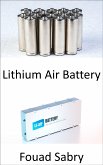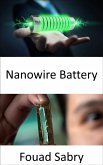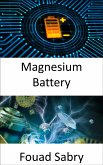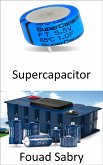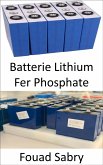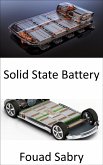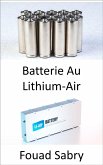What Is Lithium Iron Phosphate Battery
The lithium iron phosphate battery, often known as an LFP battery, is a form of lithium-ion battery that uses lithium iron phosphate as the cathode material. The anode of this battery is made up of a graphitic carbon electrode that has a metallic backing. The energy density of an LFP battery is lower than that of other common lithium ion battery types such as Nickel Manganese Cobalt (NMC) and Nickel Cobalt Aluminum (NCA), and it also has a lower operating voltage; CATL's LFP batteries are currently at 125 watt hours (Wh) per kg, up to possibly 160 Wh/kg with improved packing technology, while BYD's LFP batteries are at 150 Wh/kg, which is compared to over 300 Notably, the energy density of the Panasonic "2170" batteries that will be utilized in the Tesla Model 3 in the year 2020 is around 260 Wh/kg, which is approximately 70 percent of the value of its "pure chemicals."
How You Will Benefit
(I) Insights, and validations about the following topics:
Chapter 1: Lithium iron phosphate battery
Chapter 2: Lithium-ion battery
Chapter 3: Rechargeable battery
Chapter 4: Lithium polymer battery
Chapter 5: John B. Goodenough
Chapter 6: Lithium iron phosphate
Chapter 7: Electric vehicle battery
Chapter 8: Lithium-titanate battery
Chapter 9: Solid-state battery
Chapter 10: Lithium-air battery
Chapter 11: Sodium-ion battery
Chapter 12: Aluminium-ion battery
Chapter 13: Comparison of commercial battery types
Chapter 14: Research in lithium-ion batteries
Chapter 15: Lithium hybrid organic battery
Chapter 16: Magnesium battery
Chapter 17: Glass battery
Chapter 18: Lithium nickel cobalt aluminium oxides
Chapter 19: Lithium nickel manganese cobalt oxides
Chapter 20: Arumugam Manthiram
Chapter 21: History of the lithium-ion battery
(II) Answering the public top questions about lithium iron phosphate battery.
(III) Real world examples for the usage of lithium iron phosphate battery in many fields.
(IV) 17 appendices to explain, briefly, 266 emerging technologies in each industry to have 360-degree full understanding of lithium iron phosphate battery' technologies.
Who This Book Is For
Professionals, undergraduate and graduate students, enthusiasts, hobbyists, and those who want to go beyond basic knowledge or information for any kind of lithium iron phosphate battery.
The lithium iron phosphate battery, often known as an LFP battery, is a form of lithium-ion battery that uses lithium iron phosphate as the cathode material. The anode of this battery is made up of a graphitic carbon electrode that has a metallic backing. The energy density of an LFP battery is lower than that of other common lithium ion battery types such as Nickel Manganese Cobalt (NMC) and Nickel Cobalt Aluminum (NCA), and it also has a lower operating voltage; CATL's LFP batteries are currently at 125 watt hours (Wh) per kg, up to possibly 160 Wh/kg with improved packing technology, while BYD's LFP batteries are at 150 Wh/kg, which is compared to over 300 Notably, the energy density of the Panasonic "2170" batteries that will be utilized in the Tesla Model 3 in the year 2020 is around 260 Wh/kg, which is approximately 70 percent of the value of its "pure chemicals."
How You Will Benefit
(I) Insights, and validations about the following topics:
Chapter 1: Lithium iron phosphate battery
Chapter 2: Lithium-ion battery
Chapter 3: Rechargeable battery
Chapter 4: Lithium polymer battery
Chapter 5: John B. Goodenough
Chapter 6: Lithium iron phosphate
Chapter 7: Electric vehicle battery
Chapter 8: Lithium-titanate battery
Chapter 9: Solid-state battery
Chapter 10: Lithium-air battery
Chapter 11: Sodium-ion battery
Chapter 12: Aluminium-ion battery
Chapter 13: Comparison of commercial battery types
Chapter 14: Research in lithium-ion batteries
Chapter 15: Lithium hybrid organic battery
Chapter 16: Magnesium battery
Chapter 17: Glass battery
Chapter 18: Lithium nickel cobalt aluminium oxides
Chapter 19: Lithium nickel manganese cobalt oxides
Chapter 20: Arumugam Manthiram
Chapter 21: History of the lithium-ion battery
(II) Answering the public top questions about lithium iron phosphate battery.
(III) Real world examples for the usage of lithium iron phosphate battery in many fields.
(IV) 17 appendices to explain, briefly, 266 emerging technologies in each industry to have 360-degree full understanding of lithium iron phosphate battery' technologies.
Who This Book Is For
Professionals, undergraduate and graduate students, enthusiasts, hobbyists, and those who want to go beyond basic knowledge or information for any kind of lithium iron phosphate battery.
Dieser Download kann aus rechtlichen Gründen nur mit Rechnungsadresse in A, B, BG, CY, CZ, D, DK, EW, E, FIN, F, GR, H, IRL, I, LT, L, LR, M, NL, PL, P, R, S, SLO, SK ausgeliefert werden.



